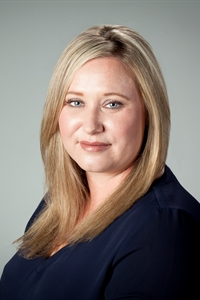Fixed vs. Adjustable Rate Mortgages
What is the difference between a
Fixed-Rate and Adjustable-Rate Mortgage (ARM) loan?
This question is one of the biggest ones during the house-hunting and purchasing process. It can, at times, be the factor that decides how much home you can afford over the life of the loan, which is why it is crucial to understand your needs, budget and general life circumstances before deciding which loan type is best for you.
Although this question is best answered through an open discussion with your mortgage loan specialist about your individual situation, there are some basic things you can consider when researching Fixed and Adjustable Rate Mortgages. The more knowledge you can gain prior to talking with your mortgage professional, the better!
Fixed-Rate Mortgages
Fixed-Rate Mortgages have a fixed interest rate that is set when you take out the home loan. These rates will not change for the life of the loan. In other words, the amount of principal and interest you pay each month won't change. This is one of the most popular types of financing because of the predictability and stability it offers borrowers. Due to the fact that this type of loan locks you in at a specific rate, these mortgages tend to have a higher interest rate, which in turn can impact the amount of house that a borrower can afford. Overall, this is a great option for homeowners that prefer less risk.
PROS
- Interest rates and payments stay consistent throughout the life of loan, providing the individual more stability and security with their loan
- Having a stable mortgage payment helps to make budgeting easier because you know what to expect month-to-month
- No need to calculate caps or fluctuations because you are "locked in" once the loan is approved
- Great for First-Time Home Buyers
CONS
- Tend to have higher interest rates
- If the market fluctuates and rates fall, you are locked in at your interest rate unless you refinance your loan
- Don't allow for as much customization and will be relatively standard from lender to lender
Adjustable-Rate Mortgages (ARM)
Adjustable-Rate Mortgages (ARM), unlike the Fixed-Rate Mortgages, have interest rates that will fluctuate throughout the life of the loan. Typically, there are set parameters that indicate the highest and lowest the rates could go. Most often, the interest rate of the loan will be relatively low at the onset of the term and will fluctuate based on the index it's tied to which means that your monthly payments could go up or down periodically.
PROS
- Typically offer lower rates initially through introductory offers that occur during the early stages of the loan term.
- Allows borrowers to take advantage of falling rates without going through the refinance process
- Great for home buyers that don't plan on staying in their home for a long period of time.
CONS
- Interest rates and payments can rise (and fall) over the time of the loan which can make planning/budgeting difficult
- Can be more difficult to understand loan conditions because there is so much flexibility
- There can be limits to how low your interest can go
 Because there are adjustments with the interest rates on these loans, make sure to understand how your ARM will adjust before deciding on this loan type. Ask questions like:
Because there are adjustments with the interest rates on these loans, make sure to understand how your ARM will adjust before deciding on this loan type. Ask questions like:
- How high or low will your interest rate go during the life of the loan?
- How frequently will your interest rate adjust?
- Is there an introductory period?
- How soon will your payment go up after the introductory period?
- Is there a cap for how high or low your interest rate could go?
How Do I Know Which Home Loan is Best for Me?
This is a very subjective question, as it will differ from person to person based on your individual situation. Although Fixed-Rate Mortgages are more popular, it doesn't mean they are right for every home buyer. Whether you decide to get a fixed-rate mortgage or an ARM, the key is to take your own personal situation in consideration. There are so many pros and cons for each type of loan, some of which may have a greater impact than others on your final decision. The most important thing to consider, above all, is your financial situation. One way you can determine those numbers would be to utilize tools such as our Mortgage Calculator so there are no surprises!
The key is not to overstretch yourself and only commit to what you can afford. If you choose a bank that is looking out for your best interest, that is something they should make a priority as well. Most importantly, remember that buying a home is one of the largest investments you'll make in your lifetime, so put some trust in professionals who know the industry to help you make your decision.
If you have additional questions or think you are ready to dive into the mortgage process, give us a call! We have an experienced lending staff and a mortgage specialist that can guide you through the process without putting pressure on you regarding your decision.


Heather Dieckmann
Mortgage Department Supervisor
(412) 837-6955


.jpeg)
